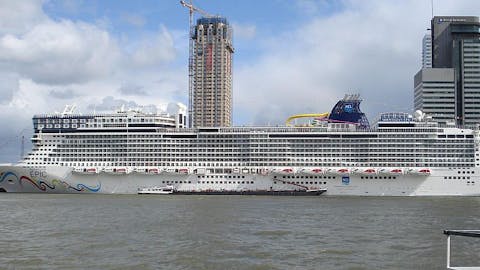Conor Cunningham: Hi, everyone. Thank you for the time. Just in terms of the cost initiatives that you’re talking about, can you just frame up the buckets and where you’re expecting the biggest improvement and maybe like a potential upside there? And then, maybe just unpack a little bit about when it’s going to hit. I would assume that a lot of it is second half weighted, but if you could just give a little bit more detail, that would be helpful. Thank you.
Mark Kempa: Yes, certainly. So, on the cost, as I said in my prepared remarks, Q1 will be the highest cost quarter. And then as we look forward sequentially, we expect those costs to decrease each quarter as some of our initiatives gain hold and take place. And I think the way to think about it is as you look toward the back half of 2023, that’s going to be a little bit more representative of what our exit rate would be as well on a go-forward basis. There is one thing I want to remind you as well as we are taking on a more — we have a more pronounced mix effect with the operating capacity that we’re bringing online as well. As you guys know, we are bringing on an Oceania class vessel in May of this year and a Regent vessel at the tail end of the year.
Those, by default, have a much higher operating cost than the NCLH average. So, there is some impact in that overall cost guidance as a result of the mix. So, keep that in mind. And then when you think about the overall buckets on the cost, it’s everything you can think of. We’ve said before, we spent a lot on marketing in 2022 going after the customer, creating that demand, elevating pricing. We believe we’ve been successful there. So, we’re going to scale start scaling that back. But it’s everyday things — everything we do on our corporate side, on our ship side, whether it’s optimizing our supply chain initiatives, optimizing our itineraries so that we’re getting the best fuel consumption. There is no silver bullet in this industry, but it’s a lot of little things that can add up and that’s what we’re squarely focused on going forward.
Conor Cunningham: Okay. And then to follow-up maybe on pricing. There’s still some — I mean, you guys still sound great on pricing, but there’s still some concerns weakening consumer overall. So, I was just curious if you could unpack your current bookings a little bit. The only reason why I ask is deployments have shifted a little bit, and I don’t know if there’s been something on the margin that implies weakness somewhere. So, any help there would be helpful. Thank you.
Frank Del Rio: Yes, this is Frank. We simply don’t see any weakness. As I mentioned in my prepared remarks, we’ve seen very, very strong record — new record booking levels dating back to November. And it’s our view that as long as consumers have a job and the labor markets remain strong, that they’ll continue spending on the things they normally spend their money on, including vacations. So, we simply don’t see a weakening consumer. If you look at our forward bookings, each quarter in 2023 is better booked than the comparable quarter in 2019. And even if you start looking into 2024, it’s never too early to talk about next year. 2024 bookings are running ahead at higher prices than they were at the same time in 2019 for 2020, which before the pandemic. So, we simply haven’t seen any indication that the consumer is shying away from taking cruise vacations, at least not with our three brands.





